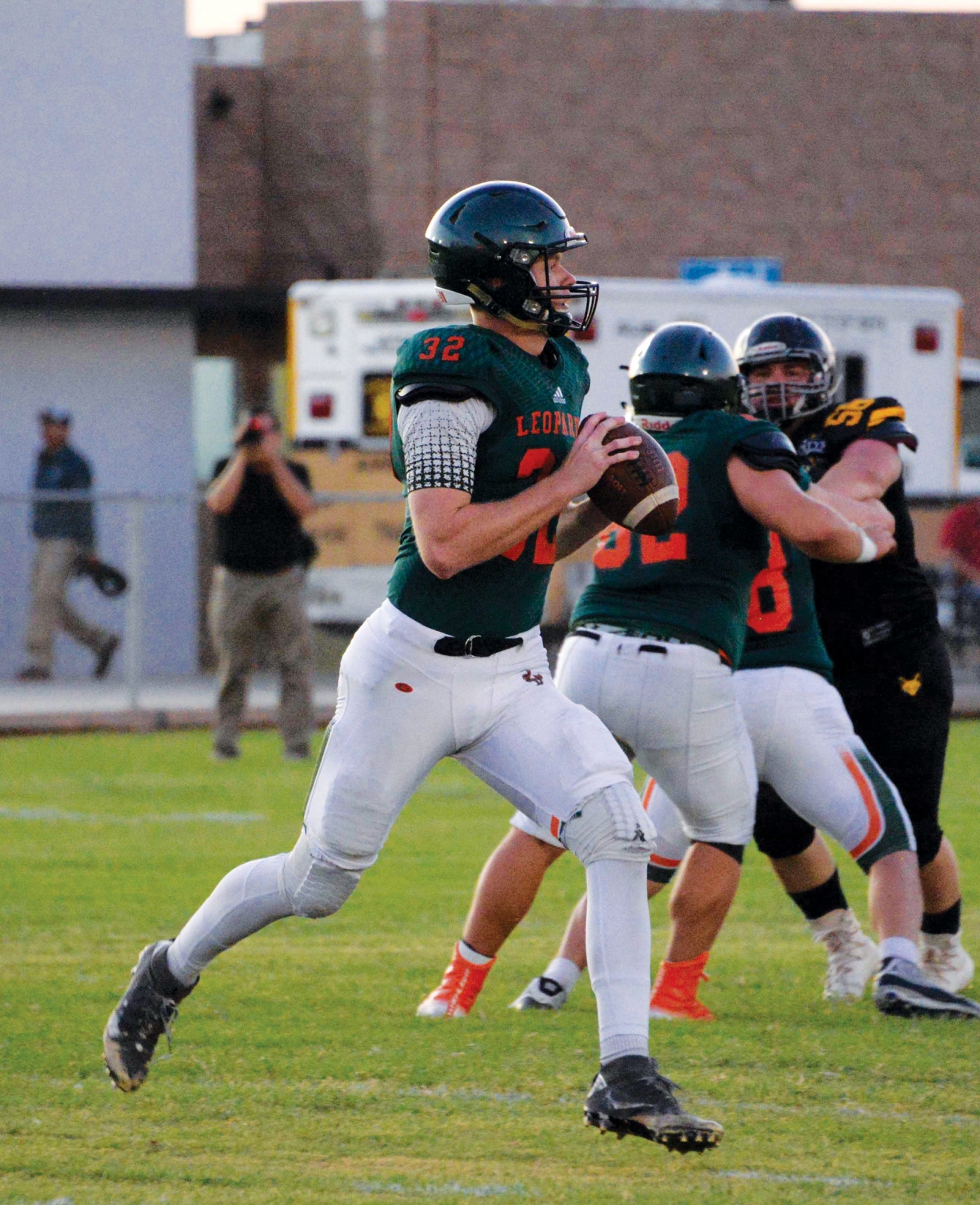When the University of La Verne football team heads into a game, the goal is usually simple: to win.
But the 2019 season opener was about more than defeating the opponent. It called for international diplomacy.
The Leopards’ opener occurred in Mexicali, Mexico. An exhibition against the Centro de Enzeñanza Tecníca y Superior Universidad (CETYS), it was the first time the La Verne squad traveled south of the border since 1953, when the Leopards traveled to Mexico City to face Mexico City College.
“I’m really excited for our team to be ambassadors of La Verne and our country,” Head Football Coach Chris Krich said before their departure. “It’s an opportunity to experience a new culture.”
The game is part of an evolving relationship between the three CETYS campuses (Tijuana, Ensenada, and Mexicali) and the University of La Verne. In athletics, the Leopards are growing accustomed to playing CETYS, having recently hosted the Zorros in baseball, volleyball, and football. It is a mutually beneficial association that gives the Leopards game experience and helps CETYS, which is aiming to be the first Mexican institution to join the NCAA for a chance to compete against American universities.
But the recent Mexicali match-up was also an opportunity for the Leopards to experience Mexican culture and play football in a new context. As one of the nation’s most diverse universities, with a Latino population of 46 percent, University of La Verne continues to promote cultural awareness in the classroom and on the field.
“Sports brings everyone together,” senior offensive lineman Manuel Dorado said. “You don’t get to see the beauty of two countries coming together and playing football often. It is special. Of course, we want to win, but it is not always about beating someone.”
The match-up between the Leopards and CETYS was also an example of how the University of La Verne promotes an expansive student experience and a global worldview.
“In a time of political division, football brings us together,” Krich said. “It is really a unique situation where we can play a rough-and-tough game and then connect in a way that builds relationships.”
For sophomore Derek Guzman, it was a homecoming, of sorts. He comes from El Centro, California, less than 15 miles from Mexicali, and grew up playing CETYS youth teams.
“We’re just students trying to have fun and compete, even though we’re from different sides,” said the linebacker. “Coming together as one, to show we have common goals, I think helps out a lot.”
Dorado’s extended family members met up at the Mexicali game, traveling from Tijuana and Ensenada for a rare opportunity to watch him in collegiate play. It was a chance to reconnect.
“Growing up, family meant everything. So I was really excited to get to play in front of them,” Dorado said.
The exhibition game does not count toward the Leopards’ record, nor will the stats be officially added to the season totals. But the advantages of playing south of the border will carry forward well beyond touchdowns, field goals, and yards gained.
